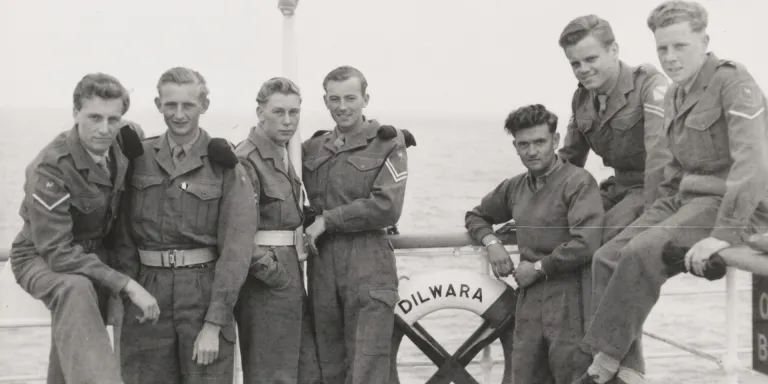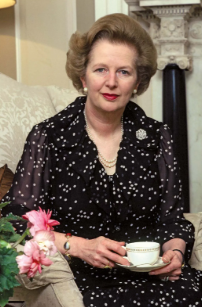Short Term Impacts
Effects on the United Kingdom
Whether or not peacetime conscription actually benefited the United Kingdom is still questioned today. Some are of the opinion that, by laying aside their rights to a complete education, quality time with their families, and the pursuit of a career, the conscripts impacted their country for the greater good. Others believe that it is the government's responsibility to consider how keeping young men in their jobs would benefit the country more.

Royal Engineers heading home from Suez on the S.S. “Dilwara,” 1954
National Army Museum
Effects on Family
Over 2 million men were conscripted into the armed forces between 1945 and 1960. This had a negative effect on some of those likely to be called up, causing them to become irresponsible and reckless.
“Adults were often confronted with the uncomfortable sense that national service was making the 'problems' of youth worse rather than better. Rates of juvenile crime rose in the 1950s. Some working-class young men seemed to be turning their back on education, training or long-term planning of their lives and it often looked as if the prospect of being called up contributed to this.”
Richard Vinen, National Service: A Generation in Uniform
The soldiers' absences also affected their families. The only contact they ever had was either during leave (for those whose families lived close enough for a visit) or through letters.
“Letter writing sessions took place during evenings when there was no money to go out, and, as many found it extremely onerous to compose letters, I helped them. Two or three would sit at a table in the barrack room writing to my dictation while I walked up and down uttering any endearments which came to mind. And my only reward was exclamations such as, ‘That's great, I like that.’”
Eric M. Malcolm, National Service High Jinks (A Young Man Story 1947-149)
Revisiting the Idea
After the last conscripted soldier was demobilized in 1963, peacetime conscription seemed to have met its end. But in 1985, some senior officers in the armed forces hinted that reintroducing peacetime conscription might remedy manpower problems. However, Margaret Thatcher, the Prime Minister, did not agree. She believed it unwise to give people such a large responsibility after it had been obsolete for so long.
“At a two-hour meeting between the Prime Minister and the four chiefs of staff of the Armed Services concern is believed to have been expressed that difficulties in sustaining the manpower to carry out all the services’ tasks were beginning to emerge.
As reported in The Times yesterday, some senior officers have hinted at the idea that the reintroduction of a limited form of national service might provide a solution.
However, Whitehall sources made clear that reintroduction of conscription was [not in] the cards. The meeting, described as being held in a ‘good atmosphere’, was the first of what is likely to turn out to be an annual event in which the Service chiefs meet the Prime Minister for a review of general matters of interest.”
Rodney Cowton, Defence Correspondent, 1985, The Times (London, England)

Margaret Thatcher, UK Prime Minister, 1979-1990
The Encyclopedia Britannica